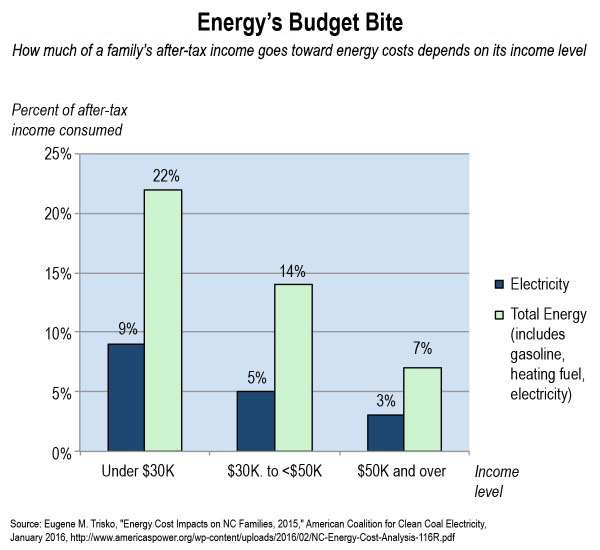This week, JLF’s Jon Sanders published a research brief on Gov. Roy Cooper’s Clean Energy Plan (CEP). Sanders writes:
Governor Roy Cooper’s unserious “Clean Energy Plan” (CEP) identified 164 organizations that “participated in the CEP development stakeholder process.” Here’s how Cooper’s Department of Environmental Quality (DEQ) engaged with these lesser stakeholders:
“Method 1 was a series of facilitated stakeholder workshops, which were day-long events attended by 60-80 experts and key stakeholders with a vested interest in clean energy. Method 2 involved more general public outreach, achieved through regional listening sessions. These events were half-day sessions intended to educate members of the public about the CEP development process and to receive feedback and comments. Method 3 involved combining with existing venues or events to collect feedback. Method 4 was the online comment portal, where members of the public who were unable to attend any of the in-person events could respond to specific questions and submit general comments.”
Sanders comments:
Basically, DEQ started with a dedicated rent-seeking fest of “experts and key stakeholders” — key! — “with a vested interest in clean energy.” Then they proceeded to lecture what few people had the free time to attend a session on what they should think about a state policy to force the special interests’ energy choices on them.
Sanders writes, this approach is a serious mistake. He explains North Carolina should begin with the largest stakeholder – the citizens of the state. He writes:
[A]nything that would raise electricity rates higher than necessary would impose higher costs on everything and everyone in North Carolina. It would also be a painfully regressive price increase on the poor, as can be seen from [the] graph.
But when politicians speak of “stakeholders,” they’re not talking about the people with the most at stake. They’re talking about groups so insulated from having to decide “Do I stay warm or eat?” that they can’t even conceive of electricity bills muscling out other basic needs. They’re talking about special interests trying to get a piece of the action.

A clean environment is important for every citizen in North Carolina, and the process to achieve that should start and end with them – not special-interest groups.
Read the full brief here. Learn more about clean energy in North Carolina here.


